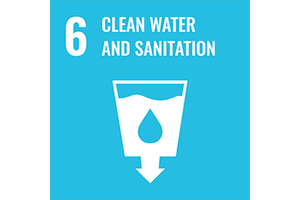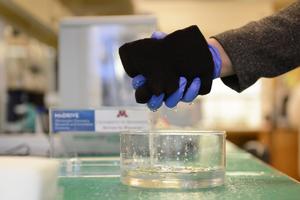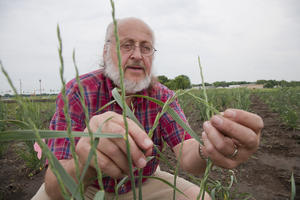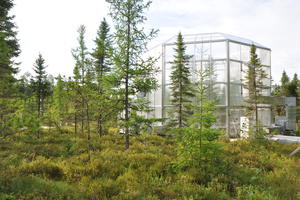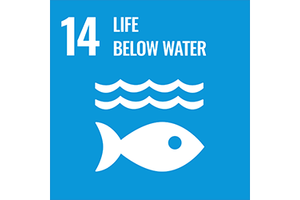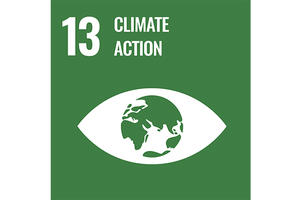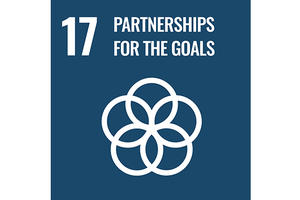CFANS
New U of M study outlines recommendations for conserving state’s threatened groundwater supply
Scientists examined four aquifers across Minnesota to determine if aquifer storage and recovery — which aims to treat, inject and temporarily store clean water in aquifers — may provide a solution to meet future demands of residents, industry and agriculture.
Chemical Sponge: UMN Professor Creates Filter for 3M Pollution
Abdennour Abbas, a UMN researcher and co-founder of "green chemistry" company Claros Technologies, hopes to address a state water pollution problem.
NY Times: Growing a new future for farming
The New York Times features UMN professor Donald Wyse in Visionaries, a limited series that looks at figures who are trying to transform the way we live.
MPR: Digging into Minnesota's peat, an under-appreciated climate superhero
MPR reporter joins a team of researchers from the Nature Conservancy and the University of Minnesota to learn more about their efforts to mitigate climate change.
University researchers among first to explore aquaculture viability in Minnesota
In the Minnesota Aquatic Invasive Species Research Center, 20,000 tiny yellow perch swim in circles in two large, blue tubs of water, occasionally bubbling to the surface to nibble on food floating there.
Conserving critical habitat in the face of climate change in Midwestern lakes by managing watershed land use
Lakes across the Midwest are losing cold, oxygenated habitat as a result of climate change and nutrient pollution. This loss of critical habitat has negative consequences for water quality, fish, and the production of greenhouse gases.
U of M researchers find as planet warms, the world's lakes are losing oxygen rapidly
Oxygen levels in the world’s temperate freshwater lakes are declining at rates faster than in the oceans, according to new research from the University of Minnesota and Rensselaer Polytechnic Institute.
Wetland restoration offers best protection against agricultural run-off
University of Minnesota researchers, along with colleagues at institutions from the University of Kansas (KU), University of California-Irvine (UCI) and others, found that wetland restoration and construction along waterways are the most cost-effective way to reduce nitrate and sediment loads in large streams and rivers.
University researchers look into ways to help forests adapt to the climate crisis
Biochar, a material made from organic resources like wood, grasses and manure, is heated to an extremely high temperature, and when processed properly, biochar can return carbon and other nutrients to the soil. Researchers think it could ultimately help forests in Minnesota combat drought caused by the climate crisis.
First comprehensive study of wildlife roadkill in Tsavo, Kenya identifies hotspots, affected species
In a recent study published in Heliyon, researchers from the University of Minnesota and Kenya Wildlife Service recorded wildlife roadkill in the Tsavo Conservation Area over an 11-year period —from 2007 to 2018 — providing the first major assessment of direct mortality of animal species along Kenya’s primary infrastructure corridor.
